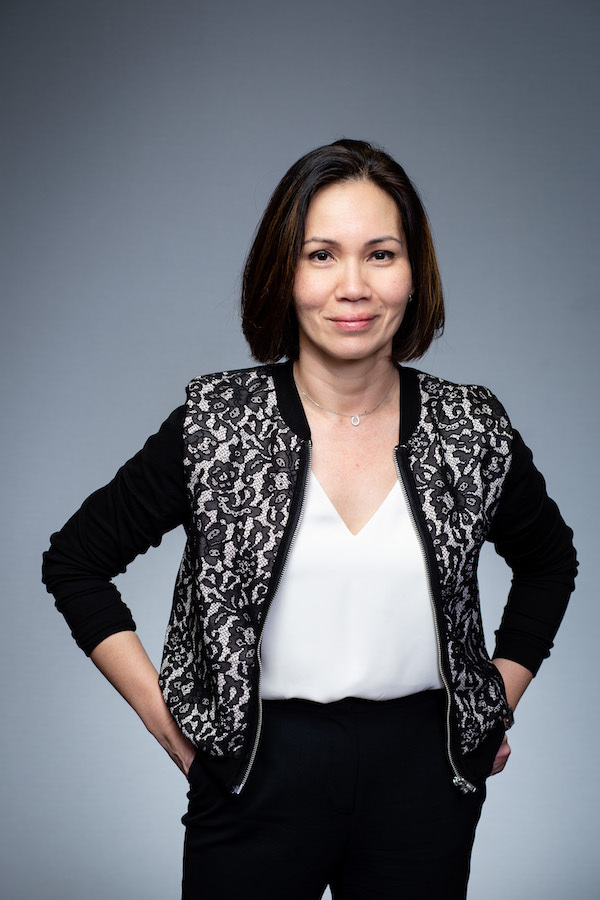This is a profile from the 2020 version of the DataIQ 100.
The 2021 list is available here
Lara Izlan, director, advertising data and analytics, ITV

Path to power
My professional journey to date spans three continents, a few media companies, several inspirational managers, and many fantastic colleagues who have shaped the way I think and work.
I grew up in Malaysia, and on winning an academic scholarship, moved to the US where I completed a degree in economics. After a short, but formative, stint in investment banking, I entered the digital media industry in San Francisco during the Internet boom.
I subsequently moved to the UK, returned to academia and gained two master’s degrees, in social psychology and business administration. For me, the study of social behaviour was inextricably linked to business and economics. I remain an enthusiast of behavioural economics to today.
I then worked for a number of media brands, including AOL, the Telegraph, AutoTrader and ITV, in strategic roles, using data and technology to drive digital transformation. In my current role, my team is responsible for developing commercial data partnerships, products, and analytics to power ITV’s advanced advertising proposition.
I am also fortunate to work with a couple of fantastic non-profit organisations. I am a mentor with Bloom UK, which supports young women in media. And I advise the charity Children of the Mekong on its digital marketing strategy.
What is the proudest achievement of your career to date?
My greatest source of professional pride are the achievements of the teams with whom I work. Two years ago, my team were up for a prestigious industry award. Our nomination showcased more than a year’s work in using first party search data to develop an insights toolkit that ultimately challenged long-standing marketing conventions in the automotive industry.
Among our principles was to make the insights accessible and actionable for our teams. These tools helped to build long-term partnerships; inform the products we build for advertisers; and ensure campaigns are optimised to relevant performance metrics. The moment it was announced that we had won the Best Use of Data award that year, is among the highlights of my recent career.
Who is your role model or the person you look to for inspiration?
I find inspiration all around me, from the teams I work with, to the authors I’m reading, to the women and men doing amazing jobs in the industry. I think we need to make more role models more visible - by celebrating their achievements, their diversity, and their contributions both to business success, but also to a balanced and fair society.
Did 2019 turn out the way you expected? If not, in what ways was it different?
I had great expectations going into 2019, as I was embarking on a new role in TV - an industry that was new to me and at the crux of its digital transformation. I looked forward to building a commercial data team, developing brand new data capabilities, and finding ways to embed data-driven thinking into the organisation to support its strategic and commercial success. While our ambitions run larger and longer, I’m happy to say that in a few short months, we made significant strides. We’ve set the groundwork for more exciting and transformative projects for the year ahead.
What do you expect 2020 to be like for the data and analytics industry?
The struggle for and celebration of diversity in the workplace made huge strides this past decade. But there is more work to be done, and a place for everyone, at every level of the organisation, to contribute in large and small ways.
I expect continued focus on building cognitively diverse teams in 2020 and hope we will see growing benefits to the industry. By being open to new viewpoints and daring to challenge conventional ways of looking at problems, I think the data industry can really drive the development of innovative products and solutions to benefit businesses and communities.
Data and technology are changing business, the economy and society – what do you see as the biggest opportunity emerging from this?
The biggest opportunity emerging from data and technology, is the same one we’ve been talking about for years - the automation of operational processes to free up focused time for creative, innovative, and strategic thinking.
We have spent many years focusing investment, time, and skills on building capabilities and infrastructure. In some cases, within the media industry, the pursuit of data and technology became an end in of itself, which is a shame. However, there are also great examples of the application of technology that enable teams of people to create more emotive and empathetic work.
What is the biggest tech challenge you face in ensuring data is at the heart of your digital transformation strategy?
The biggest technology challenge is keeping up. Digital transformation is often facilitated by large-scale technology platform upgrades and implementations, but this can sometimes be all-consuming, especially as technological improvements come at a faster and faster pace.
A balanced strategy that is equally focused on changing ways of working, for example, using data to support better decision making, and using automation to enable teams to learn quickly, will ensure the right blend of people and technology impact to drive digital transformation.
DataIQ is a trading name of IQ Data Group Limited
10 York Road, London, SE1 7ND
Phone: +44 020 3821 5665
Registered in England: 9900834
Copyright © IQ Data Group Limited 2024